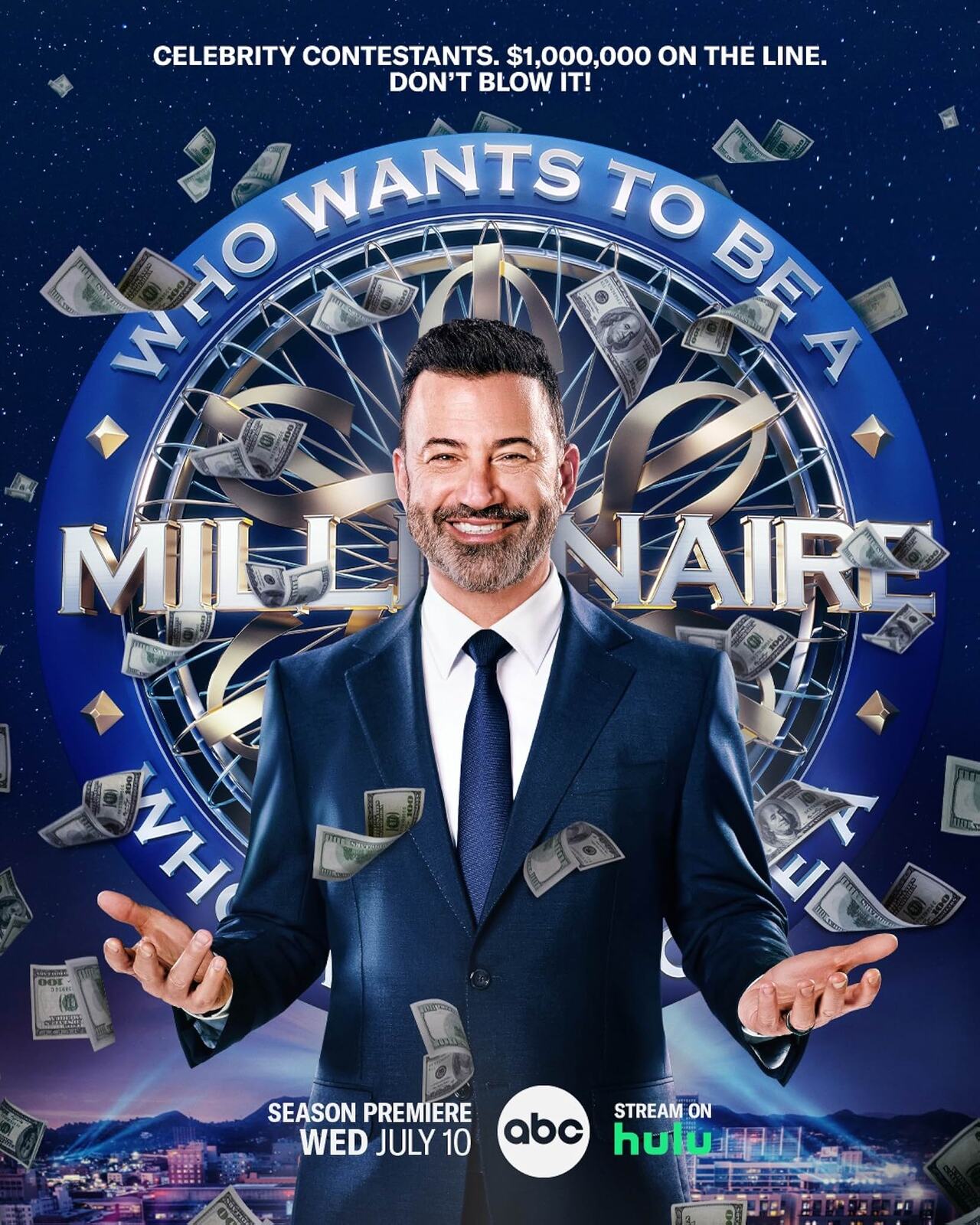
The lights dim. The music swells. You sit in that hot seat, facing a question that could change your...
Related Blogs
Who wants to be a millionaire
11 minutes, 16 seconds
-0 Views 0 Comments 0 Likes 0 Reviews

How to Win Big: The Ultimate SEO Guide to "Who Wants to Be a Millionaire"
The lights dim. The music swells. You sit in that hot seat, facing a question that could change your life. "Who Wants to Be a Millionaire" has gripped TV audiences since 1999, turning everyday folks into trivia stars. This game show tests your smarts with tough questions on everything from history to pop culture. You climb a ladder of 15 questions, each harder than the last, chasing that $1 million prize. Fans search for "Who Wants to Be a Millionaire" tips and WWTBAM strategies all the time. In this guide, we break down the format, share winning tactics, and explore real stories. Whether you dream of buzzing in or just love the drama, you'll find solid advice here. Let's unlock the secrets to beating the million-dollar question.
The Anatomy of Success: Understanding the WWTBAM Format
The heart of "Who Wants to Be a Millionaire" beats in its simple yet tense structure. You start with easy questions worth small cash amounts. As you answer right, the stakes rise fast. Miss one, and you drop to a safety point. This setup keeps players on edge, blending luck with brainpower.
The Question Ladder and Payout Structure
You face 15 questions in total. The first few pay out low, like $100 or $1,000. Safe havens lock in $1,000 after question five and $32,000 after question ten. Reach question 15, and you grab $1 million if you nail it.
Payouts have shifted over time. Early US versions offered escalating cash, but now they're fixed for fairness. In the UK, Chris Tarrant hosted with similar tiers. International spins, like in India or Australia, tweak prizes but keep the climb. This structure forces smart risk choices. You weigh walking away versus pushing on. It's all about knowing when to cash out safe.
The Essential Lifelines: Tools for the Trade
Lifelines save the day when your mind blanks. You get three main ones to use once each. They help narrow options or tap outside help. Pick wisely, as they're gone after use.
50:50: The screen removes two wrong answers. Now you guess between two. It's quick relief on tough picks.
Phone-A-Friend: Call a trusted pal for input. They have 30 seconds to advise. Choose experts in weak spots.
Ask the Audience: The crowd votes on the answer. Percentages show the top choice. It works best on common knowledge.
Newer formats add "Switch the Question." You swap a hard one for an easier version at the same level. Use it when stuck early. It differs from classics by resetting the challenge without losing progress. Save it for mid-game jams. This lifeline eases pressure but tests your timing.
The Pressure Cooker: Psychological Factors in Play
Spotlights blind you. The clock ticks. The host leans in with that knowing smile. Studio vibes amp up the nerves in "Who Wants to Be a Millionaire."
Time limits vary per question, but late ones drag to build suspense. This rush hampers clear thinking. Your heart races, muddling facts you know cold. Hosts like Meredith Vieira in the US or Jeremy Clarkson in the UK add charm and tease. They make it fun yet fierce.
Psych pressure hits recall hard. You second-guess gut feelings. Prep helps, but staying calm wins games. Breathe deep. Focus on one answer at a time. That mindset turns fear into fuel.
Mastering the Knowledge Base: Trivia Categories and Preparation Tactics
Trivia spans the globe in WWTBAM. Questions pull from books, movies, science, and news. No single topic rules, but patterns emerge. Build a wide base to climb high.
Identifying High-Probability Knowledge Gaps
Shows hit history often, like wars or leaders. Science pops up with biology basics or inventions. Pop culture tests movies, music, and sports stars. Geography and literature fill the rest.
Winners face these in about 30% of questions, based on fan logs. Losers trip on obscure facts. Fill gaps with daily quizzes. Try apps like Quizlet for quick drills. Read books like "The Book of General Ignorance" for fun facts. Watch old episodes to spot trends. This broad prep covers likely traps.
The Power of Pre-Show Research: What Contestants Must Know
Producers love twists. Questions might seem straightforward but hide tricks. Recurring themes include wordplay or visual clues. Study past shows for clues.
Practice under fake pressure. Set a timer for answers. Eliminate wrong options first. This speeds decisions in the heat. Join trivia nights at bars. They mimic the buzz. Focus on speed over perfection.
The Final Hurdle: Preparing for the Million-Dollar Question
The last question stuns with depth. It demands niche knowledge or clever twists. Past ones asked about rare events, like "Which king built the Tower of London?" (Edward I, for Judith Keppel).
Obscure? Yes. But often, it's lateral thinking. Recall connections between facts. Study timelines for history. Dive into etymology for words. Simulate finals with hard riddles. Walk away if unsure—$250,000 ain't bad. Prep builds that edge.
Strategic Lifeline Deployment: When to Hold 'Em and When to Fold 'Em
Lifelines are your aces. Deploy them right, and you stack odds. Waste them, and you're sunk. Timing matters most in "Who Wants to Be a Millionaire."
The 50:50 Dilemma: Early Game Precision vs. Late Game Necessity
Save 50:50 for mid-climb doubts. Early, use it to confirm hunches on $1,000 questions. It builds confidence without big risk.
Late game, it's a must for 50-50 shots at $500,000. Never burn it if you're sure. That wastes a safety net. Test it on practice runs. See how it shifts your guess.
Leveraging Phone-A-Friend Effectively
Pick friends who shine in categories. Vet them pre-show with sample questions. Tech whiz for gadgets? History buff for dates?
On air, guide them smart. Say, "Is it A or C?" instead of "What's the answer?" This saves seconds. Trust their tone—hesitation signals doubt. It turns a call into gold.
Audience Poll Tactics: Trusting the Crowd
Audience votes shine on everyday trivia. If 80% pick one, lean that way. But watch for biases. Crowds know pop stuff but flop on nerdy bits.
Groupthink fools them sometimes. Easy questions? Trust high. Obscure ones? Skip it. Stats show it hits 90% right on basics. Use your gut too.
Real-World Insights: Case Studies in Millionaire History
Stories from the show teach big lessons. Winners share paths to glory. Close calls show smart exits.
Winners Who Played It Safe vs. Winners Who Took Risks
John Carpenter hit $1 million first in 1999. He saved lifelines for the end. Risked it all on the final Mongol question. His calm play paid off.
Judith Keppel, UK winner, played safe. She walked from a $16,000 question once, then returned strong. Recent star like James Kaelin grabbed $1 million with bold audience polls. Safe folks lock safeties. Risk-takers chase the top. Balance fits your style.
Contrast with David Edwards. He quit at $125,000, dodging a trap. Smart move beat going bust. Walks prove wisdom over greed.
Landmark Moments: Turning Points on the Show
A 50:50 saved a player from a pop culture mix-up in 2000. It narrowed to the right band name. Analysts say it flipped defeat to win.
Phone fails haunt too. One contestant's pal guessed wrong on history, costing $250,000. Lesson: Vet choices hard. Experts note pressure spikes errors. These clips, on YouTube, guide prep. Study them for your edge.
Conclusion: Walking Away a Winner, Regardless of the Final Answer
You can crack "Who Wants to Be a Millionaire" with solid prep and smart plays. Master the ladder, wield lifelines wisely, and handle pressure like a pro. Trivia builds from daily habits—quiz apps, books, practice runs.
Mental strength seals it. Stay cool under lights. Risk only what you can lose. Even if the million slips, you gain skills for life. Dream of that hot seat? Apply now. Buzz in and claim your shot. The game's waitin'.
Tv shows Tv Game show Who wants to be a millionaire Jimmy Kimmel
Photos

